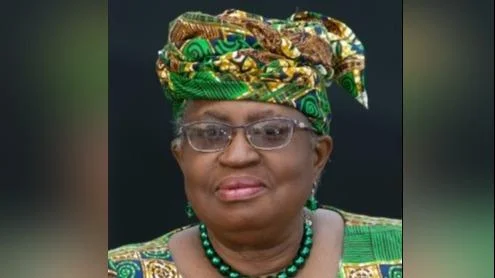The 2024 World Trade Report, titled “Trade and Inclusiveness: Making Trade Work for All,” was launched at the WTO Public Forum 2024. The report underscores the shared goal of WTO members to ensure that trade benefits more economies and people.
Director-General Ngozi Okonjo-Iweala stated, “A key message from the report is that protectionism is not an effective, or cost-effective, path to inclusiveness. More and better trade is the path of bringing people and places from the margins to the mainstream of the global economy.” She emphasized that while trade policy reforms have led to substantial growth benefits since the WTO's establishment, complementary domestic policies are necessary to make trade work for everyone.
WTO Chief Economist Ralph Ossa highlighted that income disparities between economies have narrowed significantly since the WTO's inception. He noted new findings linking trade participation with reduced income disparities among economies and evidence showing that WTO membership has boosted trade between members by an average of 140 percent. However, he acknowledged that not all individuals or economies fully enjoy these gains.
“Less trade will not promote inclusiveness, nor will trade alone. True inclusiveness demands a comprehensive strategy — one that integrates open trade with supportive domestic policies and effective international cooperation,” Ossa said.
The morning session also featured the launch of the WTO's new Trade Concerns Database. Deputy Director-General Angela Ellard remarked, “This initiative marks a milestone in the Organization's ongoing efforts to enhance transparency, inclusivity, and access to critical information within the multilateral trading system.” The database provides extensive data on trade concerns discussed across various WTO bodies.
Suja Rishikesh Mavroidis explained that "trade concern" refers to situations where one or more WTO members express concern over a measure applied by another member potentially disrupting market access rights or violating WTO rules. The database includes detailed information on these concerns raised since 1995.
A high-level panel spotlighted eight Young Trade Leaders who shared insights on improving participation in world trade by young people, marginalized communities, and developing economies. Eric Andrew from Nigeria called for leveraging Africa’s production potential for better integration into global trade. Phoebe Britten from Australia emphasized using trade as a vessel for achieving human rights goals. Hugh Jones from Canada stressed giving indigenous communities a voice in international policymaking.
Yassine Krouk from France advocated for reforming the multilateral trading system based on re-globalization principles. Sunny Li from China called for more cooperation at an international level to mitigate negative geopolitical impacts on trade inclusivity. Florencia Mastrorilli from Argentina highlighted opportunities for Latin America in global trade through improved infrastructure and efficiency in customs operations.
Nasubila Ng'ambi from Malawi urged boosting Africa’s digital economy participation and access to finance and infrastructure. Elina Sultanbekova from Kyrgyz Republic underscored ensuring smaller nations benefit equally from global trade networks by prioritizing digital integration.
Later sessions included discussions organized by Peterson Institute for International Economics focusing on navigating geopolitical tensions through decentralized supply chains and broader regional involvement in global trade as part of re-globalization strategies.

